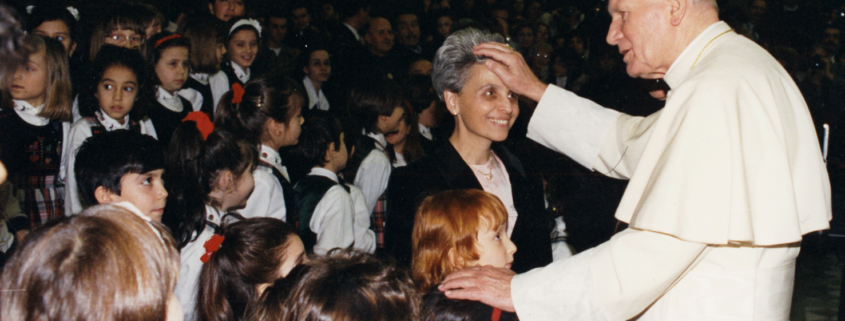Theology of the Body for Schoolchildren
If ever there was a time to teach young people about human nature and our common human dignity, it’s now.
They need to know that race, sex and their very lives are willed by God. They need to know that marriage and family are also willed by God, and that the collapse of the family has contributed to many of the social ills that are on display today.
The timing is right, then, for newly published educational standards that help schools teach St. John Paul II’s “theology of the body” in a progression from kindergarten through eighth grade. They help transmit to students a “vision of the human person according to God’s loving design,” and Catholic education is uniquely situated to teach it.
“It’s a gamechanger for someone to be deeply convinced of their personal self-worth, dignity and purpose, knowing themself to be infinitely and unconditionally loved by God and called to live in a communion of persons in his image,” state the new “Standards for Christian Anthropology,” co-authored by Dr. Joan Kingsland of Ruah Woods Press and Dr. Denise Donohue of The Cardinal Newman Society.
“This self-knowledge includes respecting and revering oneself, others and above all God. It affects the choices made by young people about how they will treat others and expect others to treat them.”
The standards explore the foundations of personal identity and are a key solution to the problems we face in society right now. Just consider, what if every student in Catholic schools across the country was taught authentic Christian anthropology? How would society look different, if graduates of Catholic education could clearly articulate and defend the value of every human person?
“In recent years there’s been a surge in the ever-widening gap between the mainstream take on the identity of the human person versus a Christian vision rooted in Sacred Scriptures,” explain Dr. Donohue and Dr. Kingsland. Gender ideology, racial division, pornography, premarital sexual activity, contraception and abortion are just some of the challenges facing Catholic educators, and increasingly they are pressured to compromise Catholic teaching.
Understandably, then, many Catholic education leaders welcome the standards.
They “provide much-needed guidance for more deeply understanding who we are as human beings, made in the image of God,” says David McCutchen, coordinator of the office for catechetical formation in the Diocese of Toledo.
“These standards present, at age-appropriate moments, the foundational truths upon which an authentically Christian view of the human person must be built,” he continues. “The burning questions and confusing issues of our time regarding human dignity, sexuality and gender can be effectively addressed only in light of these fundamental truths.”
Jill Annable, assistant superintendent of Catholic schools in the Diocese of Grand Rapids, agrees. “It is a difficult task to articulate the Catholic worldview of Theology of the Body, yet the Standards for Christian Anthropology provide us key teachings for each grade level that will be understandable to families and assist teachers in critical aspects of this formation in a logical sequence,” she says.
Jim Rigg, superintendent of Catholic schools for the Archdiocese of Chicago, adds that the standards help ensure that “students are able to tangibly uphold the sanctity of human life.”
Ultimately, the goal of an authentic Catholic education is to form students with the foundation they need for this life and the one to come. Given the recent struggles in our society, it is imperative that young people know their own worth and the dignity of every human being they encounter.
This article first appeared at The National Catholic Register.

